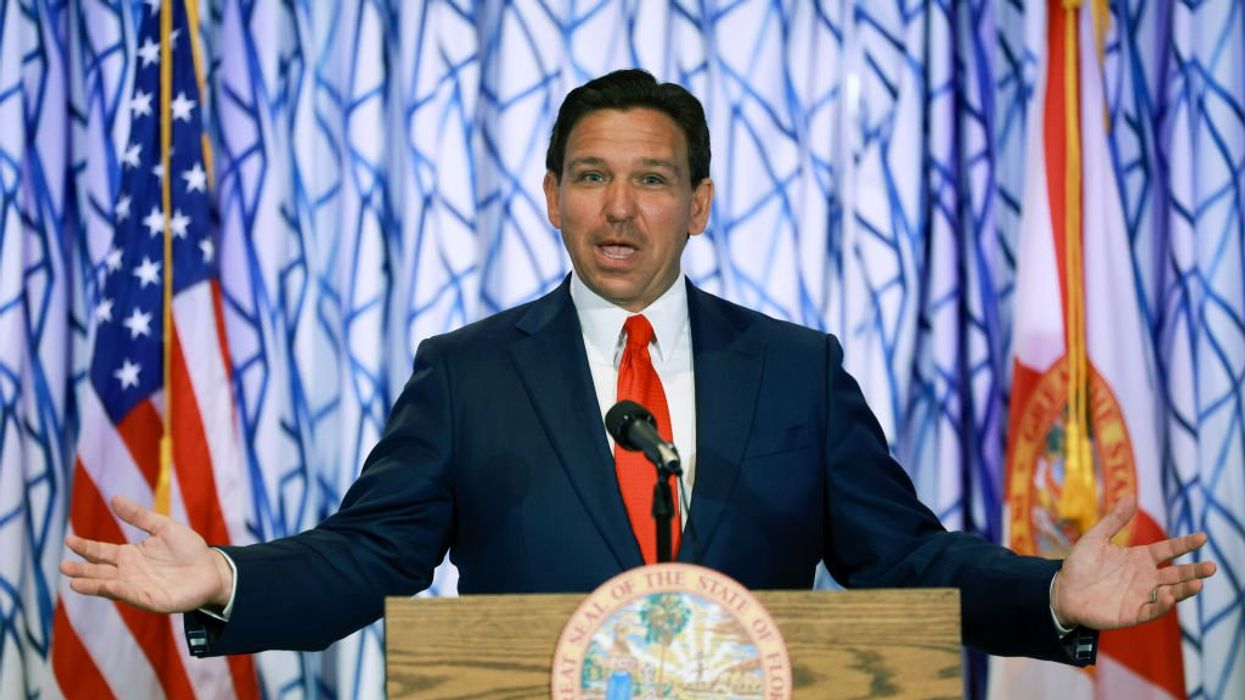
Joe Raedle/Staff/Getty Images

Florida’s fiscal restraint is a model for the rest of the nation.
Last week, Florida Gov. Ron DeSantis (R) shared that he had signed the “Focus on Florida’s Future Budget” for the 2024-2025 fiscal year. The budget includes plans to reduce spending year-over-year and generate a nearly $17 billion surplus.
The Sunshine State has been strong on fiscal responsibility with previous surpluses, most recently during the last fiscal year. While most states run small surpluses, this is a solid effort. And Florida stands in stark contrast to California, where a surplus of around $100 billion — due in part to an infusion of federal funds during the COVID-19 pandemic — has turned into a stated $26.7 billion deficit in just three short years. (The Associated Press estimates the Golden State’s budget deficit is closer to $45 billion when including actions the legislature and governor have already passed and signed.)
Florida shows that it’s more than money that makes good outcomes — it’s competent and fiscally restrained governing.
Outside of the state realm, the federal government has been derelict in its duty to be financially responsible or a good steward of capital.
The U.S. federal debt has become unwieldy, at best. Just about every major financial body, including the Treasury, the Fed, the Congressional Budget Office, and the International Monetary Fund, along with financial heavyweights like Jamie Dimon of JPMorgan Chase and Ken Griffin of Citadel, have criticized America’s fiscal path as unsustainable. Despite deficit spending to GDP remaining around double historic averages, Americans are feeling more personal financial pain.
It doesn’t have to be this way. Florida has shown a good model exists for fiscal responsibility.
The state does not burden its residents with income taxes and balances that with reined-in spending. Data from KFF shows that Florida spends less per capita than every other state and the District of Columbia, with the exception of Texas.
Despite this, the state continues to achieve strong outcomes for residents. For example, in May, U.S. News and World Report ranked Florida as the top state for education. This marked the second consecutive year that Florida earned the top spot in education. According to the Florida Tax Watch group, “The Governor and the Florida Legislature deserve credit for spending the money that has been available in a largely responsible manner. They were able to make significant investments in infrastructure, the environment, education, and teachers, while enacting record tax cuts and maintaining exceptional levels of reserve.”
Moreover, the state continues to attract large numbers of residents, largely at the expense of poorly run states.
Although net migration wasn’t as high in Florida last year as it was in 2022, when its population growth made Florida the most popular state for Americans to relocate, Florida in 2023 boasted the second largest rate of population growth in the country.
Of course, that doesn’t mean that Florida is perfect, either from a governance perspective or a comprehensive cost-of-living perspective. Some of the latter, such as the rising cost and difficulty of obtaining homeowners insurance, has more to do with geography and other industry-specific issues.
Yet, still, in contrast with a federal government running massive deficits, a nearly $35 trillion national debt, and interest payments on track to surpass every other category of spending, Florida shows that it’s more than money that makes good outcomes — it’s competent and fiscally restrained governing.
Carol Roth
Contributor